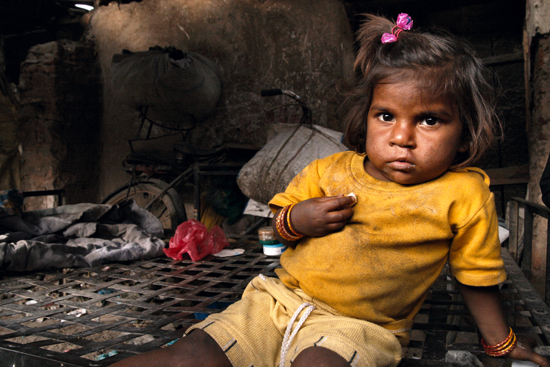 The 1984 Union Carbide Gas Disaster
The 1984 Union Carbide Gas Disaster
On December 3rd, 1984, 8000 people in Bhopal, India, were gassed to death after a catastrophic chemical leak at a Union Carbide pesticide plant. More than 150,000 people (1) were left severely disabled – of whom 22,000 (2) have since died of their injuries – in a disaster now widely acknowledged as the world’s worst ever industrial disaster.
What leaked and why?
More than 27 tons (3) of methyl isocyanate and other deadly gases turned Bhopal into a gas chamber. None of the six safety systems at the plant were functional (4) and Union Carbide’s own documents prove the company designed the plant with “unproven” and “untested” technology, and cut corners on safety and maintenance in order to save money.
The aftermath
Today, nearly 27 years after the Bhopal disaster, at least 50,000 people (5) are too sick to work for a living, and a study in the Journal of the American Medical Association confirmed that the children of gas-affected parents are themselves afflicted by Carbide’s poison.
Water contamination
Carbide left Bhopal without cleaning its factory site. The chemicals and wastes it abandoned have contaminated the drinking water of 30,000 people (6). Testing published in a 2002 report revealed poisons such as 1,3,5 trichlorobenzene, dichloromethane, chloroform, lead and mercury in the breastmilk of nursing women living near the factory.
Cancers and birth defects
Recent reports confirm that the contamination is getting worse. Water from one hand pump in Atal Ayub Nagar, already lethal by 1999, has become seven times more toxic since then. The rate of birth defects in the contaminated areas is ten times higher than in the rest of India. Cancers and other diseases are rife.
Polluter Pays, but Dow refuses
The survivors, and the governments of India and Madhya Pradesh hold that Dow Chemical acquired Carbide’s “polluter pays” and other liabilities when it purchased 100 percent of that company in 2001 (7). Indeed, immediately after the acquisition, Dow set aside $2.2 billion to meet Carbide’s asbestos liablilities in the US. However it bluntly refuses to accept Carbide’s liabilities in Bhopal – or even admit that they exist. To this date, Dow/Carbide has refused to:
1) Clean up the site, which continues to contaminate those near it, or to provide just compensation for those who have been injured or made ill by their poisons;
2) Fund medical care, health monitoring and the necessary research studies, or even to provide all the information it has on the leaked gases and their medical consequences;
3) Provide alternate livelihood opportunities to survivors who can not pursue their usual trade because of their exposure-induced illnesses;
4) Stand trial before the Chief Judicial Magistrate’s court in Bhopal, where Union Carbide faces criminal charges of culpable homicide (manslaughter), and has fled these charges for the past 20 years.
Source: www.bhopal.net
Photo of Tajmin, a victim of the ongoing water contamination, courtesy of Micha Patault


